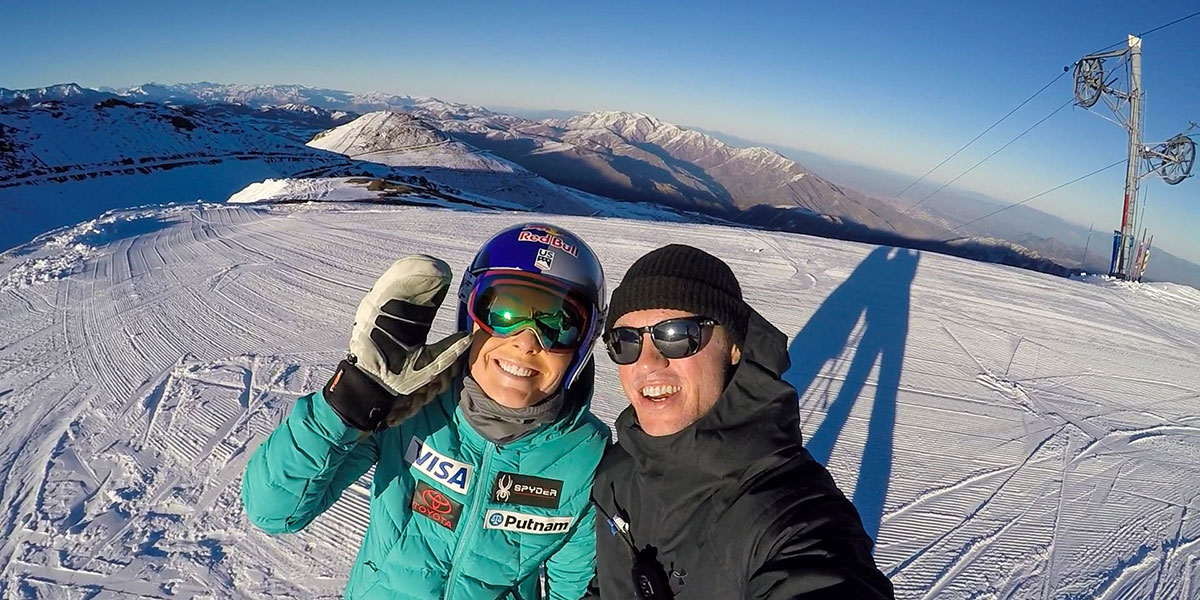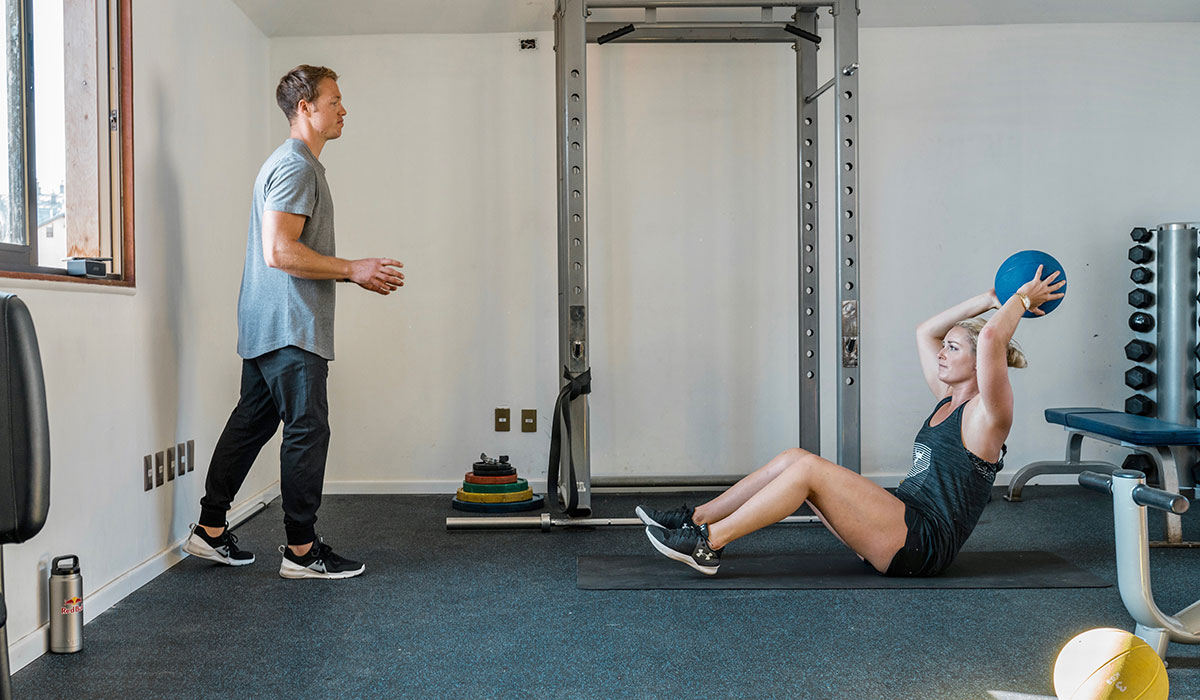Lindsey Vonn's Trainer on How to Prepare for Ski Season This Year
Before you hit the slopes this ski season, it's important to make sure you're doing everything you can to stay safe and build up the muscles you need to do your best. To get tips on what you can do to improve your game, we spoke to Alex Bunt, an athlete performance specialist for Red Bull and Mount Sinai and the former trainer for Olympic Alpine skier Lindsey Vonn, and Shraddha Bhatia, PT DPT, chief physical therapist at The Health Center at Hudson Yards, who incorporates her passion for sports and yoga into her evidence-based treatment strategy.
What are your top tips for training this season?
From AB: Just because the ski season has started, does not mean you can stop exercising. If you work really hard in the gym to get ready for ski season and then stop once ski season starts, your hard earned fitness gains will begin to deteriorate rapidly. If you’re looking to maximize the quality of your skiing throughout the season and improve as it goes on, you need to continue to train when you're not on the mountain. Fortunately, it does not take much to maintain your offseason fitness gains. You can actually do 50 percent less of what you were doing back in the summer and fall. For example, if you normally run for two hours each week to prep for ski season, then you only need to run for one hour each week when you're skiing. The same is true for gym training; for example, if you were getting your leg muscles strong by doing squats for 4 sets of 10 reps, then during ski season you only need to do 2 sets of 5 reps to maintain your strength.
From SB: My general rule of thumb for recreational skiers is consistent training for at least two months before season begins. Lower body strengthening and core training is essential in preparing you for the season.
What can you do to make your muscles feel better after skiing?
From AB: Use light exercise to “flush the muscles out” – you’ll increase blood flow which will help bring oxygen and nutrients to the tired ski muscles. To feel fresher for your next day on the mountain, try an Aerobic Pulse session – spin on the bike at a light pace for 15-35 minutes interspersed with bouts of 5-second, high rpm sprints (increase resistance during these bursts). A 35-minute Aerobic Pulse session looks like this:
3 Rounds of:
5-min Light Pace
5-min Light Pace w/ one 5-second sprint at the start of each minute
After the 3 rounds, finish with a 5-min Very Light Pace cool-down.
From SB: Recovery is a good balance of sleep, nutrition (a protein dominant diet to promote muscle recovery) and hydration. Your baseline strength determines how soon the body can reset after a day of skiing. So preparation is key.
Are there any products you recommend to help with recovery?
From AB: Fortunately, all the best recovery methods are free! Sleep, relaxation, stress management and planned rest make up the bulk of your recovery.
From SB: No products specifically but a visit to the steam room, sauna or jacuzzi could help relax tense muscles and prevent hypothermia (lowering of body temperature). It would also be helpful to allow yourself 2-3 days post skiing to begin retraining in the gym.
What is one mistake you see people making over and over with their skiing?
From AB: Not taking a day off. With each successive day on the mountain fatigue within the muscles will build up and this accumulated fatigue will decrease the quality of your skiing. The amount of days you can ski in a row will depend on your fitness and experience level; on average, 4-days in a row is the limit. Pick your days on the hill, if you know one day is going to be bad weather, take the day off and enjoy other activities that the mountain has to offer. Maximize the good days and set yourself up for success by listening to your body and taking a day to rest.
After the season, what do you tell people to do to stay in shape?
From AB: Get back on a structured plan written by a qualified professional to guarantee you reach your fitness goals.
From SB: My universal advice to everyone who is not a professional athlete is to get up and move. Exercise as regularly and consistently as possible which can be a challenge given our work schedules. Set short-term training goals. And always ramp up your training based on the demands of your sport. In case of skiing, don’t compromise the pre-season training period.
The Related Life is written and produced by Related Luxury Rentals. Be sure to follow us on Facebook, Twitter and Instagram for the latest events, news and announcements in your area, and tag us for a chance to be featured @therelatedlife and #therelatedlife.

